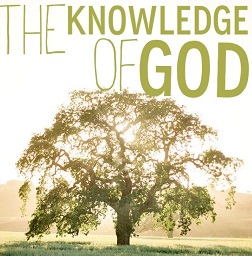What Happens to Creation, When Humans Do Not Know God?
Author: Bobby Valentine | Filed under: Apologetics, Contemporary Ethics, Discipleship, Environment, Hebrew Bible, Mission, Politics, Revelation, Salvation
Some believers are, seemingly, under the impression that human activity does not have any significant, detrimental, impacts upon God’s creation. Because God promised that God would not destroy the world (Gen 9), they surmise that we humans cannot kill God’s property. Even though we all know of myriads of now extinct species killed off by humans. We know where there was once vast tracts of forest that are now parking lots (where are the legendary “cedars of Lebanon”). We all know of rivers and lakes that are not only unsafe for drinking, playing in but are aglow with toxic waste. But we tell ourselves this does not matter, humans do not alter the environment.
To even bring it up they claim you are being “political.” But again those who claim to follow the Bible often know very little about the Bible. So God’s prophet, Hosea, chastised Israel because they had sinned. There was “no knowledge of God” in the land. In our modern north American context we translate this as “there is no church attendance in the land” or “there is no patriotism in the land.” But this is not what it meant in Hosea’s day and is not what it means in our own.
What does the lack of knowledge of God do? Let’s see,
“Hear the word of the LORD, O people of Israel;
for the LORD has an indictment against the inhabitants of the land.
There is no faithfulness, no love, no knowledge of God
in the land.
There is only cursing, lying and murder,
stealing and adultery;
they break all bounds and bloodshed follows bloodshed.”
That certainly sounds like a society without knowledge of God doesn’t it? It sounds like a list of infractions against the Ten Words/Commandments in fact. But Hosea, inspired by the Holy Spirit, does not stop in verse 2. He states that human sin does something to God’s creation. Note carefully,
“THEREFORE [v.3 is the conclusion of v.2] the land mourns,
and all the who live in it languish;
together with the wild animals
and the birds of the air,
even the fish of the sea are perishing“
(Hosea 4.1-3)
It was not God destroying the creation, human sin was. Animals, birds, even fish are dying because there is “no knowledge of God.” The Bible speaks to this matter quite frequently (to the surprise of many). For example, Isaiah tells us that among the many crimes that God would judge the Assyrian king Sennacherib for was that he made war on those famous, but now nearly extinct, cedars of Lebanon. He “laid waste to all the nations {the people} and their lands {the dirt}).” He threatened little Judah and bragged of his destructive power. Isaiah sent a letter to Hezekiah delivering the judgement of God against him. The Lord quotes the king’s arrogant boasts, “I have gone up the heights of the mountains, to the far recesses of Lebanon; I felled its tallest cedars, its choicest cypresses” (Isaiah 37.24).
In two texts Babylon is singled out for similar reasons. In Habakkuk 2.17, Yahweh tells the Babylonian king “for the violence done to Lebanon will overwhelm you; the destruction of the animals will terrify you.” Here Yahweh is returning to Babylon the destruction she has sown against creation. In Isaiah 14 it is the trees themselves that break out in exultation because God has destroyed their Babylonian destroyer, “the cypresses exult over you, the cedars of Lebanon, saying, ‘Since you were laid low, no one comes to cut us down.” (Isa 14.8).
Modern westerners read right over these, and similar texts. They do not register in our post-Enlightenment platonic worldview. But the Bible declares that the trees belong to the Lord (Ps 104.16f) and that humans are themselves “creatures” who are part of a community of God’s creatures.
The Bible teaches that humans most certainly impact, through their sin, the creation that belongs to God. Our interaction with creation shows our knowledge of God. And God, according to the Bible, cares a great deal about our destruction of what does not belong to us. In the last book of the Bible, the Creator God and the Messiah face the nations that rebel against divine kingship. But God’s wrath has come,
“but your wrath has come, and the time for judging the dead,
for rewarding your servants, the prophets and saints and
all who fear your name, both great and small,
AND FOR DESTROYING THOSE WHO DESTROY THE EARTH” (Revelation 11.18).
Here is the thing my beloved friends. If I am a Christian (and I am talking to folks who believe in the God of the Bible), when the chips are down it does not matter if I believe or disbelieve in “global warming,” or if I believe humans impact the world. Caring for God’s creation is a matter of faithful discipleship to God. According to Genesis that is why God created us in the first place, to be gardeners. That is, we were created to care for the good creation on behalf of the Lord of Creation.
The Knowledge of God … is it in our churches?
Texts you may want to read in addition to those cited here are Genesis 1.1-2.4; Psalm 104; Joel 1-2; Colossians 1.15-21; and Romans 8.18-21.
Leave a Reply